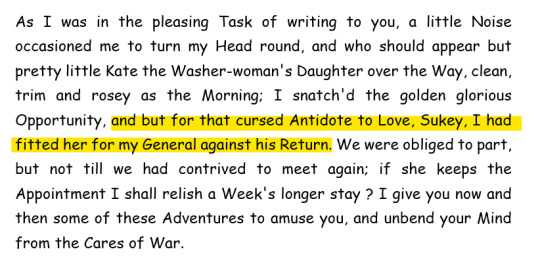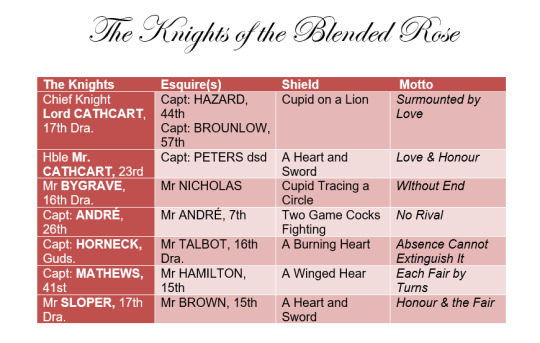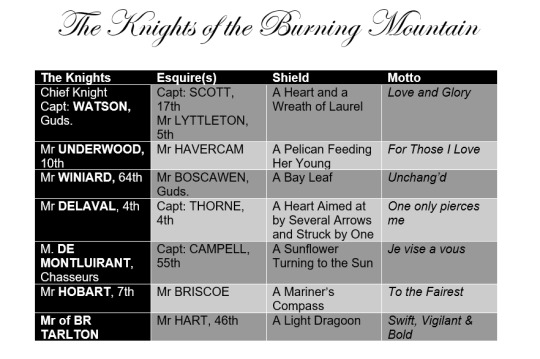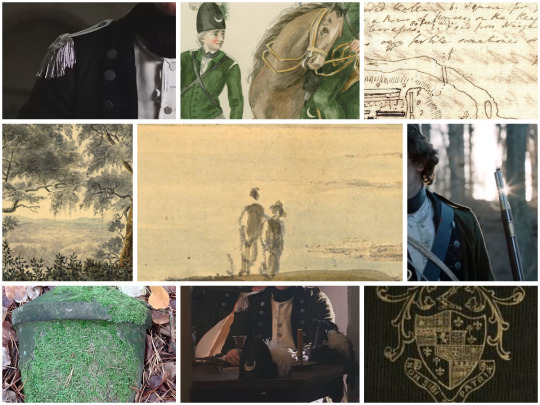#friederike charlotte von riedesel
Explore tagged Tumblr posts
Text
Tumblr Dashboard Simulator, the British of the American Revolutionary War
🌊my-peggys-husband
We have a man confin'd aboard the Preston, a common scrub by the name of Benjamin Hichborn, who was caught carrying the most extraordinary letter pertaining the private dealings of one Mr G. Washington, written to him by a Mr B. Harrison:

As you can see from an etching of the original as printed above, that man is a rascal and a scoundrel. For how is a man to be trusted to keep true to his country, if he cannot remain true to his wife? Mrs Admiral says that she should not suffer such a husband, and that any man of any worth & quality should reject him.
This is your time to join the True Protectors of Moralty and Order around these parts!
#may that man washington and his cursed boot lickers rot in hell #britain #pro britain #a pox upon the continentals #boston #local politics
239 notes

🎻the-saddest-violin
This may differ slightly from my usual missives about playing the violin and new musicians to be aware of (Haydn and Boccerini are to be highly recommended, especially the latter is as yet little known in these parts, though very innovative in his compositions), but I feel I can no longer withhold what troubles me, and have no other place to speak of it:
There is a lady whom I have fixed my affection upon, and cannot forget her; yet she is wed to a scoundrel, and has a son by him. We see each other daily, and until now I have held my tongue, but my soul can no longer endure this torment.
We share an acquaintance that is too long to be recounted here, and does not signify. What is of some import is that in recent times, I have observed her grown less reticent in her intercourse with me, joking, smiling, and conversing freely. Might it be true that she may keep me in the same regard as I do her?
I knew that I held her in high affection her when first I saw her, when she was stood in my parlour at Boston, fall'n on hard times and heavy with child. That very moment, she could have ask'd me to be the Joseph to her Mary, and I would gladly have accepted her, and her child, who is dear to me also, into my home.
For I am a shy b-tch, as I have before confessed to, I ask of you:
#poll #private #henry rambles on
147 notes

🦸♂️gentleman-johnny
It is with sadness that I have to announce that for the time being, I will have to take a step back from social media.
Do not fret, this blog will not be taken down, and you shall not be deprived of access to my plays on my website; yet a personal emergency, and a busy work schedule demand of me to retire from my online pursuits.
Pray not for me, pray for Charlotte.
#personal #psa
623 notes

🤰🏻fromthingsgoingbaddeleytoworse
I keep thinking of a song I heard play the other day, but cannot recall it entire, I know but the first few lines of it.
If one of you could do me the immense kindness to tell me its title, and perhaps some print-shop where it might be got, I would be much obliged.
It goes:
He never speaks his passions He never speaks his views Whereas other men speak volumes The man I love is mute In truth, I can't recall Being wooed with words at all Even now He plays the violin He tucks it right under his chin And he bows, oh he bows For he knows, yes he knows
#ask #music #song #ough #never has a song felt so true to my soul
12 notes

🎭meschianza-updates-official
UPDATE: Your Knights in Shining Armour REVEALED!
Dear Friends, estemm'd Citizens of Philadelphia, my brave Brothers-in-Arms!
It is an honour to unveil to you the participants of the Meschianza's jousting tournament! Our fourteen gallant heroes will take each other on in two teams, the Knights of the Blended Rose and the Knights of the Burning Mountain. ...Can you espy Yours Truly on the list?
Guests (particularly you, ladies!) are encouraged to select their champion and cheer him to victory!


Remember, the Meschianza, our grand farewell event for General Howe and an immersive masquerade experience, will take place on 2 June 1778. There will be many exciting activities, such as a regatta, a ball, our exclusive joust, and a fireworks display!
If you have any more questions regarding the dress code or the location's anti-American security measures, you can PM this blog, or my private arts and poetry blog, @johnandree-privee!
#meschanzia #philadelphia #masque #society #party of the year #apply for tickets while some are yet left!
780 notes

🐕howo
With these new devices call'd mobile phones, it has grown much easier to do a great many things; is any here who can recommend any app or device that should allow for me to know where my dog is when I cannot see him? It appears that he has got off again, and it would be very bad indeed were it to happen in battle, and he to fall into the enemy's hands. Suggestions are welcome!
#dogs #petcare
515 notes

📗thegreencoe-t
@johnaandree-privee tagged me to share some drawings, etchings &tc., which are representative of One's character:

Having viewed mine, and should youl like to share such a composition of images of your own, consider yourself tagg'd by me!
#tag game #aesthetic #dark academia
52 notes

💂diary-of-a-lady-hessian
Es sollte einer jeden Frau, so einen rechtschaffenen Mann hat, ein Betrübniß sein, wenn er unter so einem wie dem General Burgoyne dienet.
#hot takes #for my english speaking friends #generals clinton and philipps i respect #general burgoyne i do not
302 notes

♟️howey
youtube
@ben-franklin better luck next time!
#chess #politics #soft politics #diplomacy
45 notes

🔴patrioticheroesnevergetdeactivated--deactivated
To all the people who reported me and got my old account @awesome-arnold deactivated: you're mere pathetic haters. I did what I had to do, and you cannot fault me for it.
All the missives I received that were unsigned prove the cowardice of you people in the face of one who knows what it means to risk his life, and lose his health for his cause.
We will win this war, just you wait. My blog won't go anywhere, and the British Army won't either!!!
0 notes
#18th century#history humour#utter nonsense#dashboard simulator#unreality#samuel graves#mary baddeley#henry clinton#william howe#caroline howe#friederike charlotte von riedesel#benedict arnold#american revolution#american revolutionary war#amrev#john andre#john graves simcoe#Youtube
56 notes
·
View notes
Text
An excellent guide, and a great addition as well.
If you are reluctant to name your characters in a 'Regency' (or any other historical setting with a much narrower distribution of common first names as today) the top 3 names for that era and have several characters with the same first name for 'authenticity' reasons, fret not. It's a valid concern; having delved into the history of an Anglo-Irish family of predominantly naval officers of the 18th and 19th centuries, people did get confused even then. With up to 4 family members of the same name (given- and surname) alive at the same time, distinctions got tricky, quickly, especially among the rather uniformely named men, who were either Johns, Samuels, Thomases or Richards. References to their ranks (i. e. calling the eldest Mrs Samuel Graves "Mrs Admiral" to set her apart from the other Mrs (Samuel) Graveses) and shortened nicknames were used within the family, but the confusion was not limitted to the family and severe enough that even the Earl of Sandwich, the First Lord of the Admiralty, occasionally got the half dozen or so Graveses under his command confused in his letters.
In order to avoid a family constellation like that for your characters, or simply because you might just like to give them a more 'unique' name, here are some more or less unusual names compiled from my own research, mostly covering people born into upper- or upper middle class families in the anglophone sphere of the latter half of the 18th century that could serve as some inspiration for how to make up a 'Regency' (given) name that is recognisable, yet retains a period-appropriate ring to it.
Needless to say, you can do some digging and learn about common and less common names at other points in time or of other geographical settings as well, but since OP's post was about Regency names and the popular genre of Regency fiction (as a descriptor in fiction, the term Regency usually refers to Britain, usually England from 1800 to the 1820s), I have left out any later or earlier remarkable names I have collected over time.
Mum and Dad are Pretentious Reading Americus in the H-tier list, my first thought was of Friedrich Adolf von Riedesel, a Hessian commander in the American Revolutionary War. His wife Friederike Charlotte accompanied him, and fell pregnant while in North America. Hoping for a boy, they decided on the name "Americus", intending to name their son for his birth place. When the baby turned out to be a daughter, the little one was swiftly dubbed "Amerika". Amerika von Bernstorff, née Riedesel (b. 1780) married and had children with somewhat more ordinary names. In the same category fall the siblings Septima Sexta, Seraphima, Olivia Septima and last but not least, Octavia Isabella Colleton Graves (b. 1790, 1794, 1799 and 1805 respectively), although "Olivia" was a family heirloom name that had first belonged to a great-aunt born in 1695. Curiously, their other 6 siblings had comparatively more common given names. For some added confusion for the casual Latin enjoyers, Septima Sexta was the 7th child, Olivia Septima the 8th, and Octavia Isabella the 10th, albeit the 8th daughter.
(Middle) Name Is a Godparent's Surname: Similar to naming a boy for his mother's maiden name. Leaves you ample opportunity to fairly credibly introduce an amusing or broodily ominous talking name. My favourite will probably forever be John Graves Simcoe (b. 1752), of whom it is known that the first 'dates' he and his wife had were outings to the ruins of a medieval abbey. You couldn't make it up more gothically romantic. John Graves also loved writing poems heavy with urn symbolism. He managed to rhyme "urn" with "shall my Eliza with true passion burn." I wish I were joking. A more unfortunate example would be Pownoll Bastard Pellew (b. 1786), son of the famous Sir Edward Pellew, and perhaps one to have lived up to his middle name if one looks at his biography. Named in honour of the man whom his father felt he owed his career to, the illustriously-named Captain Philemon Pownoll, who had died in a battle that had ultimately sparked the future Sir Edward's career, and the locally powerful Bastard family from Devon (stress is on the second syllable, not the first, obviously), now this is a name one couldn't possibly come up with naming a dastardly villain character.
(Middle) Name Posthumus/Posthuma for a Posthumous Child: rare, but did happen to mark the death of a parent prior to a child's birth. The wife of the aforementioned urn-enthusiast John Graves Simcoe was born Elizabeth Posthuma Gwillim (b. 1762), having lost her father when her mother was a mere month pregnant, who then in turn died shortly after birth. Elizabeth only appears to have used her middle name in legal contexts, indicating she did not like it very much, perhaps because in a way, it made her into a living memorial to two people she had never known.
Named for a Parent, but It's Their Nickname: Little Eliza Simcoe (b. 1782) was named for her mother, Elizabeth Posthuma. Her father, John Graves picked "Eliza" because that was the special nickname he used for his wife. Very much in love and wanting to honour 'Eliza Senior', he proposed naming their firstborn after her mother.
A Guide to Historically Accurate Regency-Era Names

I recently received a message from a historical romance writer asking if I knew any good resources for finding historically accurate Regency-era names for their characters.
Not knowing any off the top of my head, I dug around online a bit and found there really isn’t much out there. The vast majority of search results were Buzzfeed-style listicles which range from accurate-adjacent to really, really, really bad.
I did find a few blog posts with fairly decent name lists, but noticed that even these have very little indication as to each name’s relative popularity as those statistical breakdowns really don't exist.
I began writing up a response with this information, but then I (being a research addict who was currently snowed in after a blizzard) thought hey - if there aren’t any good resources out there why not make one myself?
As I lacked any compiled data to work from, I had to do my own data wrangling on this project. Due to this fact, I limited the scope to what I thought would be the most useful for writers who focus on this era, namely - people of a marriageable age living in the wealthiest areas of London.
So with this in mind - I went through period records and compiled the names of 25,000 couples who were married in the City of Westminster (which includes Mayfair, St. James and Hyde Park) between 1804 to 1821.
So let’s see what all that data tells us…
To begin - I think it’s hard for us in the modern world with our wide and varied abundance of first names to conceive of just how POPULAR popular names of the past were.
If you were to take a modern sample of 25-year-old (born in 1998) American women, the most common name would be Emily with 1.35% of the total population. If you were to add the next four most popular names (Hannah, Samantha, Sarah and Ashley) these top five names would bring you to 5.5% of the total population. (source: Social Security Administration)
If you were to do the same survey in Regency London - the most common name would be Mary with 19.2% of the population. Add the next four most popular names (Elizabeth, Ann, Sarah and Jane) and with just 5 names you would have covered 62% of all women.
To hit 62% of the population in the modern survey it would take the top 400 names.
The top five Regency men’s names (John, William, Thomas, James and George) have nearly identical statistics as the women’s names.
I struggled for the better part of a week with how to present my findings, as a big list in alphabetical order really fails to get across the popularity factor and also isn’t the most tumblr-compatible format. And then my YouTube homepage recommended a random video of someone ranking all the books they’d read last year - and so I present…
The Regency Name Popularity Tier List
The Tiers
S+ - 10% of the population or greater. There is no modern equivalent to this level of popularity. 52% of the population had one of these 7 names.
S - 2-10%. There is still no modern equivalent to this level of popularity. Names in this percentage range in the past have included Mary and William in the 1880s and Jennifer in the late 1970s (topped out at 4%).
A - 1-2%. The top five modern names usually fall in this range. Kids with these names would probably include their last initial in class to avoid confusion. (1998 examples: Emily, Sarah, Ashley, Michael, Christopher, Brandon.)
B - .3-1%. Very common names. Would fall in the top 50 modern names. You would most likely know at least 1 person with these names. (1998 examples: Jessica, Megan, Allison, Justin, Ryan, Eric)
C - .17-.3%. Common names. Would fall in the modern top 100. You would probably know someone with these names, or at least know of them. (1998 examples: Chloe, Grace, Vanessa, Sean, Spencer, Seth)
D - .06-.17%. Less common names. In the modern top 250. You may not personally know someone with these names, but you’re aware of them. (1998 examples: Faith, Cassidy, Summer, Griffin, Dustin, Colby)
E - .02-.06%. Uncommon names. You’re aware these are names, but they are not common. Unusual enough they may be remarked upon. (1998 examples: Calista, Skye, Precious, Fabian, Justice, Lorenzo)
F - .01-.02%. Rare names. You may have heard of these names, but you probably don’t know anyone with one. Extremely unusual, and would likely be remarked upon. (1998 examples: Emerald, Lourdes, Serenity, Dario, Tavian, Adonis)
G - Very rare names. There are only a handful of people with these names in the entire country. You’ve never met anyone with this name.
H - Virtually non-existent. Names that theoretically could have existed in the Regency period (their original source pre-dates the early 19th century) but I found fewer than five (and often no) period examples of them being used in Regency England. (Example names taken from romance novels and online Regency name lists.)
Just to once again reinforce how POPULAR popular names were before we get to the tier lists - statistically, in a ballroom of 100 people in Regency London: 80 would have names from tiers S+/S. An additional 15 people would have names from tiers A/B and C. 4 of the remaining 5 would have names from D/E. Only one would have a name from below tier E.
Women's Names
S+ Mary, Elizabeth, Ann, Sarah
S - Jane, Mary Ann+, Hannah, Susannah, Margaret, Catherine, Martha, Charlotte, Maria
A - Frances, Harriet, Sophia, Eleanor, Rebecca
B - Alice, Amelia, Bridget~, Caroline, Eliza, Esther, Isabella, Louisa, Lucy, Lydia, Phoebe, Rachel, Susan
C - Ellen, Fanny*, Grace, Henrietta, Hester, Jemima, Matilda, Priscilla
D - Abigail, Agnes, Amy, Augusta, Barbara, Betsy*, Betty*, Cecilia, Christiana, Clarissa, Deborah, Diana, Dinah, Dorothy, Emily, Emma, Georgiana, Helen, Janet^, Joanna, Johanna, Judith, Julia, Kezia, Kitty*, Letitia, Nancy*, Ruth, Winifred>
E - Arabella, Celia, Charity, Clara, Cordelia, Dorcas, Eve, Georgina, Honor, Honora, Jennet^, Jessie*^, Joan, Joyce, Juliana, Juliet, Lavinia, Leah, Margery, Marian, Marianne, Marie, Mercy, Miriam, Naomi, Patience, Penelope, Philadelphia, Phillis, Prudence, Rhoda, Rosanna, Rose, Rosetta, Rosina, Sabina, Selina, Sylvia, Theodosia, Theresa
F - (selected) Alicia, Bethia, Euphemia, Frederica, Helena, Leonora, Mariana, Millicent, Mirah, Olivia, Philippa, Rosamund, Sybella, Tabitha, Temperance, Theophila, Thomasin, Tryphena, Ursula, Virtue, Wilhelmina
G - (selected) Adelaide, Alethia, Angelina, Cassandra, Cherry, Constance, Delilah, Dorinda, Drusilla, Eva, Happy, Jessica, Josephine, Laura, Minerva, Octavia, Parthenia, Theodora, Violet, Zipporah
H - Alberta, Alexandra, Amber, Ashley, Calliope, Calpurnia, Chloe, Cressida, Cynthia, Daisy, Daphne, Elaine, Eloise, Estella, Lilian, Lilias, Francesca, Gabriella, Genevieve, Gwendoline, Hermione, Hyacinth, Inez, Iris, Kathleen, Madeline, Maude, Melody, Portia, Seabright, Seraphina, Sienna, Verity
Men's Names
S+ John, William, Thomas
S - James, George, Joseph, Richard, Robert, Charles, Henry, Edward, Samuel
A - Benjamin, (Mother’s/Grandmother’s maiden name used as first name)#
B - Alexander^, Andrew, Daniel, David, Edmund, Francis, Frederick, Isaac, Matthew, Michael, Patrick~, Peter, Philip, Stephen, Timothy
C - Abraham, Anthony, Christopher, Hugh>, Jeremiah, Jonathan, Nathaniel, Walter
D - Adam, Arthur, Bartholomew, Cornelius, Dennis, Evan>, Jacob, Job, Josiah, Joshua, Lawrence, Lewis, Luke, Mark, Martin, Moses, Nicholas, Owen>, Paul, Ralph, Simon
E - Aaron, Alfred, Allen, Ambrose, Amos, Archibald, Augustin, Augustus, Barnard, Barney, Bernard, Bryan, Caleb, Christian, Clement, Colin, Duncan^, Ebenezer, Edwin, Emanuel, Felix, Gabriel, Gerard, Gilbert, Giles, Griffith, Harry*, Herbert, Humphrey, Israel, Jabez, Jesse, Joel, Jonas, Lancelot, Matthias, Maurice, Miles, Oliver, Rees, Reuben, Roger, Rowland, Solomon, Theophilus, Valentine, Zachariah
F - (selected) Abel, Barnabus, Benedict, Connor, Elijah, Ernest, Gideon, Godfrey, Gregory, Hector, Horace, Horatio, Isaiah, Jasper, Levi, Marmaduke, Noah, Percival, Shadrach, Vincent
G - (selected) Albion, Darius, Christmas, Cleophas, Enoch, Ethelbert, Gavin, Griffin, Hercules, Hugo, Innocent, Justin, Maximilian, Methuselah, Peregrine, Phineas, Roland, Sebastian, Sylvester, Theodore, Titus, Zephaniah
H - Albinus, Americus, Cassian, Dominic, Eric, Milo, Rollo, Trevor, Tristan, Waldo, Xavier
& Men were sometimes given a family surname (most often their mother's or grandmother's maiden name) as their first name - the most famous example of this being Fitzwilliam Darcy. If you were to combine all surname-based first names as a single 'name' this is where the practice would rank.
*Rank as a given name, not a nickname
+If you count Mary Ann as a separate name from Mary - Mary would remain in S+ even without the Mary Anns included
~Primarily used by people of Irish descent
^Primarily used by people of Scottish descent
>Primarily used by people of Welsh descent
I was going to continue on and write about why Regency-era first names were so uniform, discuss historically accurate surnames, nicknames, and include a little guide to finding 'unique' names that are still historically accurate - but this post is already very, very long, so that will have to wait for a later date.
If anyone has any questions/comments/clarifications in the meantime feel free to message me.
Methodology notes: All data is from marriage records covering six parishes in the City of Westminster between 1804 and 1821. The total sample size was 50,950 individuals.
I chose marriage records rather than births/baptisms as I wanted to focus on individuals who were adults during the Regency era rather than newborns. I think many people make the mistake when researching historical names by using baby name data for the year their story takes place rather than 20 to 30 years prior, and I wanted to avoid that. If you are writing a story that takes place in 1930 you don’t want to research the top names for 1930, you need to be looking at 1910 or earlier if you are naming adult characters.
I combined (for my own sanity) names that are pronounced identically but have minor spelling differences: i.e. the data for Catherine also includes Catharines and Katherines, Susannah includes Susannas, Phoebe includes Phebes, etc.
The compound 'Mother's/Grandmother's maiden name used as first name' designation is an educated guesstimate based on what I recognized as known surnames, as I do not hate myself enough to go through 25,000+ individuals and confirm their mother's maiden names. So if the tally includes any individuals who just happened to be named Fitzroy/Hastings/Townsend/etc. because their parents liked the sound of it and not due to any familial relations - my bad.
I did a small comparative survey of 5,000 individuals in several rural communities in Rutland and Staffordshire (chosen because they had the cleanest data I could find and I was lazy) to see if there were any significant differences between urban and rural naming practices and found the results to be very similar. The most noticeable difference I observed was that the S+ tier names were even MORE popular in rural areas than in London. In Rutland between 1810 and 1820 Elizabeths comprised 21.4% of all brides vs. 15.3% in the London survey. All other S+ names also saw increases of between 1% and 6%. I also observed that the rural communities I surveyed saw a small, but noticeable and fairly consistent, increase in the use of names with Biblical origins.
Sources of the records I used for my survey:
Ancestry.com. England & Wales Marriages, 1538-1988 [database on-line].
Ancestry.com. Westminster, London, England, Church of England Marriages and Banns, 1754-1935 [database on-line].
#if you know my blog you might recognise some of the people named in this post#reblog#long post#regency era#18th century#19th century#names#yeoldenews
12K notes
·
View notes